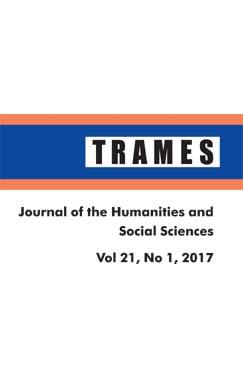INTENTION TO HAVE SEXUAL INTERCOURSE WITHOUT A CONDOM
INTENTION TO HAVE SEXUAL INTERCOURSE WITHOUT A CONDOM
Author(s): M. J. Ferraces, M. Rodriguez, Mar Duran, A. Río, J. M. SabucedoSubject(s): Social psychology and group interaction, Behaviorism, Health and medicine and law
Published by: Teaduste Akadeemia Kirjastus
Keywords: anticipated positive affect; anticipated negative affect; past behaviour; theory of planned behaviour; intention to not use a condom;
Summary/Abstract: Based on the research of Ajzen & Sheikh (2013), the fundamental objective of this study is to explore the importance of Anticipated Affect and Past Behaviour in the intention to have sexual intercourse without a condom. A questionnaire was applied to a sample of 184 students from the University of Santiago de Compostela. Anticipated affect was measured with regard to having sexual intercourse with and without a condom. The results show that this variable significantly increased the model's explanatory capacity only when the variables from the Theory of Planned Behaviour and the affect are measured in the same sense as the action (R2 = 4.0%). Past Behaviour is the added variable which explains most variance (R2 = 9.0%), and are related not only indirectly, but also directly and significantly with this intention respectively. This intention is linked with components of emotions, experience and social influence.
Journal: TRAMES
- Issue Year: XXI/2017
- Issue No: 1
- Page Range: 15-32
- Page Count: 18
- Language: English

